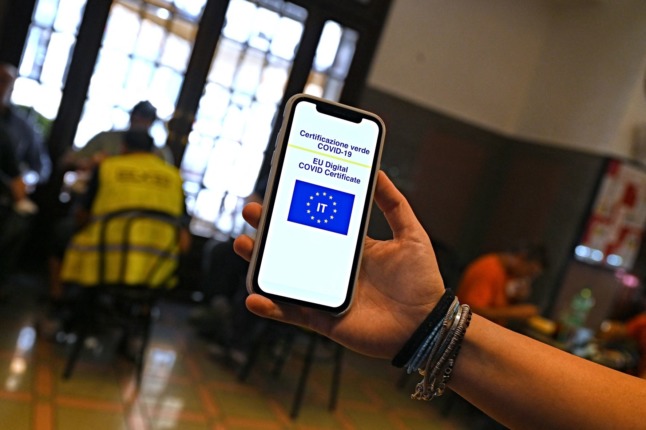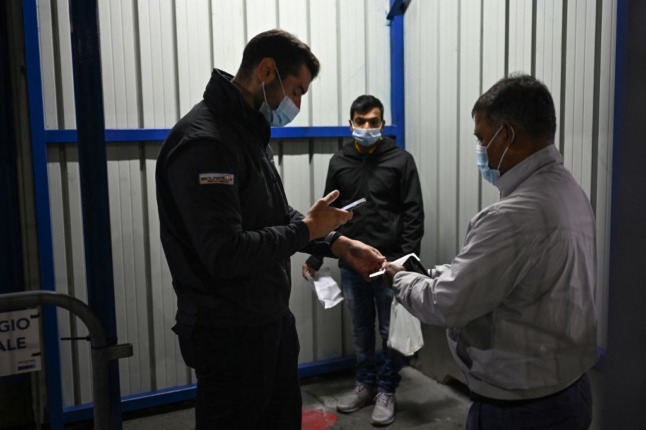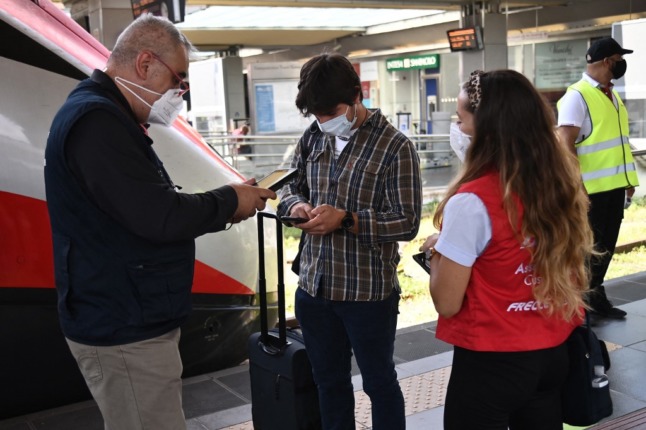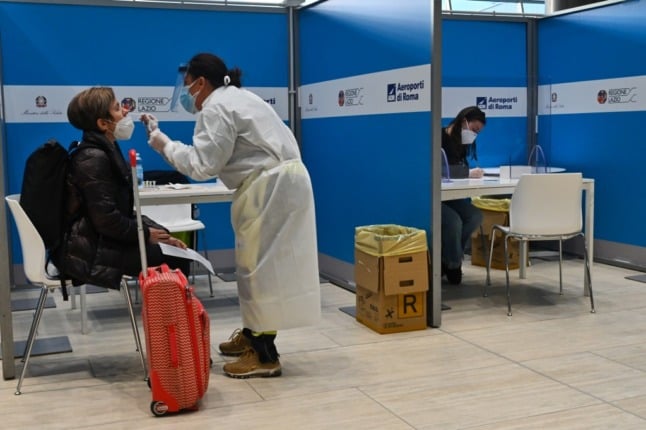Note: This article is no longer being updated. Please find the latest news here.
Italian Prime Minister Mario Draghi will hold a meeting with regional leaders on Monday evening, beginning several days of talks on a new government decree which is expected to be announced by Friday, reports national broadcaster Rai.
As the health situation has worsened across Italy in recent weeks – particularly in the north-eastern regions of Friuli Venezia Giulia, Veneto and the autonomous province of Bolzano – leaders of local governments are increasingly pushing for new measures, mainly in the form of further restrictions on the unvaccinated under a so-called “super green pass” scheme.
KEY POINTS: Italy’s new plans to contain the Covid fourth wave
Italy began rolling out its health certificate or ‘green pass’ for domestic use in August, initially making it a requirement at many leisure and cultural venues such as cinemas and indoor restaurants, before extending its use to workplaces and some forms of public transport.
The certificate shows that the bearer has been vaccinated against Covid-19, has recovered from the disease within the last six months, or has tested negative in the last few days.
Instead, the proposed ‘super green pass’ would only be issued to those who are vaccinated or recovered, with passes issued based on testing in future only valid for entry to workplaces.

While no concrete decisions have yet been made, sources within the health ministry have indicated that it is considering the measure for any region declared a higher-risk ‘orange’ zone.
“Closures and restrictions must not be paid for by the vaccinated,” said Health Undersecretary Andrea Costa, adding that the ‘super green pass’ plan would “guarantee the unvaccinated access to workplaces and basic needs, but certain activities such as going to a restaurant, cinema or theatre should be reserved for the vaccinated if the situation worsens.”
“It is clear that we must bring in new initiatives,” he said in an interview with Sky TG24 on Sunday.
EXPLAINED: Will Italy bring in a Covid lockdown for the unvaccinated?
At the moment all of Italy remains in the lowest-risk ‘white’ zone, with few health measures in place.
However several regions are now nearing the thresholds at which they would be moved into the ‘yellow’ zone next week, and – if the situation continues to worsen – then risk being placed under orange zone restrictions two weeks later.
Costa said a planned third dose obligation for health workers “is already foreseen and I think it will be approved this week.”
Health Minister Roberto Speranza put forward proposals last week to make third doses obligatory for the healthcare staff already subject to a vaccine requirement, and also to cut the validity of Italy’s Covid-19 health certificate – the so-called green pass – from 12 to nine months for people who are vaccinated, including with a third dose.
READ ALSO: Italy to start Covid boosters for over-40s on Monday as infection rate rises
The changes have not yet been formally approved, but are expected to come in from December 1st under the planned new decree set to be signed into law by the end of the week.
Other measures the government is reportedly considering include cutting the validity of green passes based on PCR test results from 72 to 48 hours, and those from the results of rapid testing will be reduced from 48 to 24 hours.
There have also been calls from health experts and regional leaders to stop issuing green passes based on rapid test results altogether, as these are less reliable than the results of a PCR test.




 Please whitelist us to continue reading.
Please whitelist us to continue reading.
Member comments